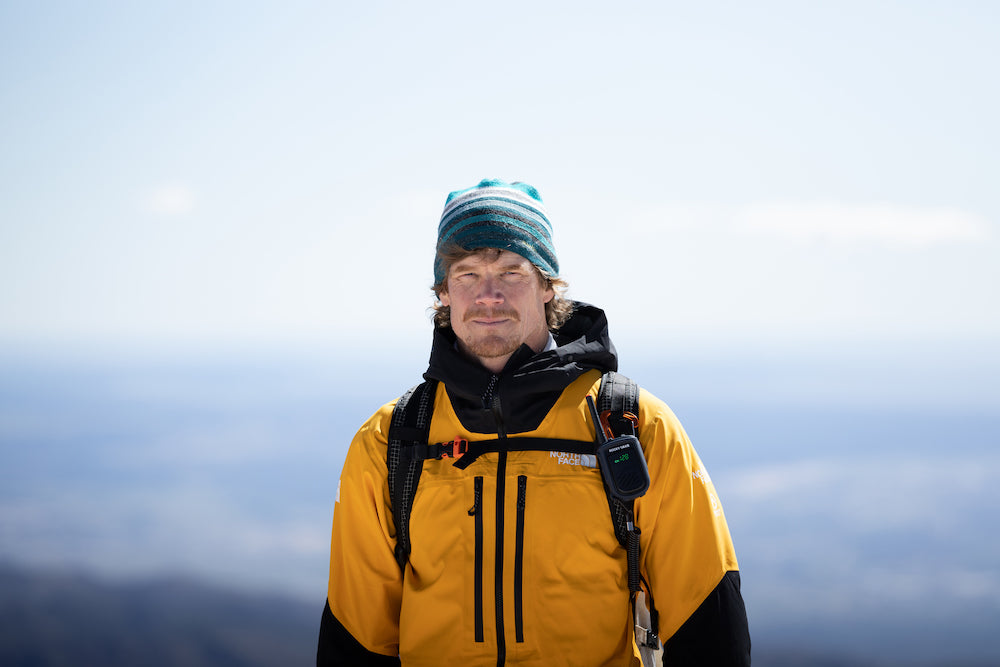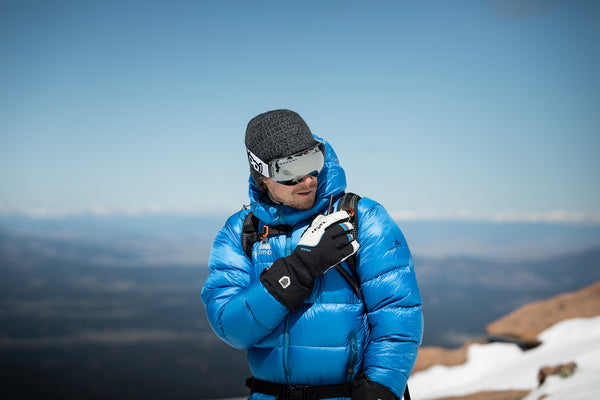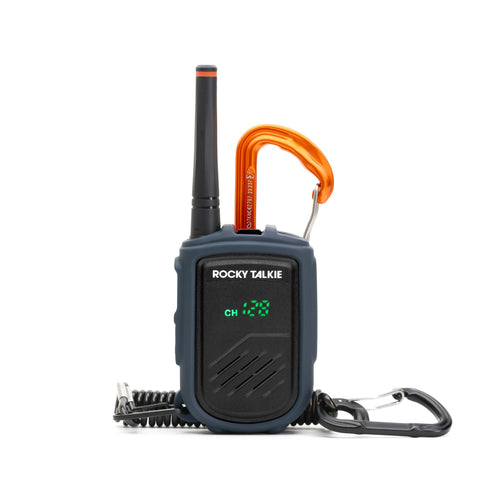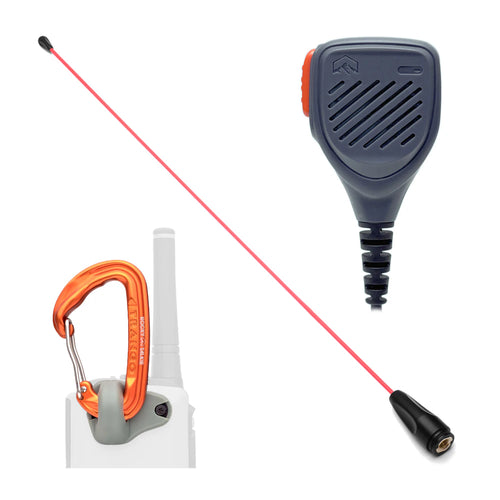
Don Bowie Joins Rocky Talkie Team After Himalayan Epic
| 3 min readEven after years of first-hand experience, it’s hard for Don Bowie to believe just how harsh winter in the Himalaya can be. High winds scour the mountains of snow, leaving behind rock and bulletproof ice. Temperatures regularly drop to -50 degrees—as low as -80 with wind chill.
Those were the kinds of forecasts Bowie was getting six months ago, huddled in a tent at 6,900 meters (22,600 feet) as 70mph gusts pummeled the walls and the weather window to summit 8,051-meter Broad Peak closed around him.
Bowie was in the midst of attempting his first winter ascent of the mountain with Russian climber Dennis Urubko and Finnish climber Lotta Hintsa. It was to be a test run for Bowie and Urubko’s true objective: K2.
“Among mountaineers, climbing K2 in winter is likely one of the greatest objectives left undone,” says Bowie.
After a childhood spent exploring the mountains near his hometown in Alberta, Canada, Bowie cut his teeth in technical climbing in Colorado’s South Platte and then in California’s Sierra Nevada. He eventually turned his sights to bigger mountains in South America, where he found a natural aptitude for pushing his limits at altitude.

In 2005 he followed the footsteps of his childhood heroes—climbers like Greg Child, John Roskelley, and Wanda Rutkiewicz—to Pakistan’s Karakoram range and staged a solo attempt of Broad Peak. He made it to 7,800 meters, just shy of the summit. The unequivocal self-sufficiency and the feeling of raw exploration were like nothing he’d experienced. He knew the Himalaya was where he belonged.
By the end of 2019, Bowie had over 20 high-altitude expeditions under his belt and had successfully summited four of the world’s 14 8,000-meter peaks, including K2 in summer. Urubko’s resume was even more stacked, with 19 8,000-meter summits and three 8,000-meter first ascents in winter. They felt they were ready for the elusive winter K2 summit. But the mountains had other plans.
Bowie had started the expedition with a minor illness that slowly worsened into a chest infection. The brutal conditions made it worse, and over time the infection turned into bronchial pneumonia, which compromised Bowie’s ability to continue climbing without supplemental oxygen.
“By the sixth week on the mountain, I was falling apart physically,” Bowie says. Plus, storms were closing in. He and Hintsa were eventually forced to call for rescue. (Urubko stayed behind for a solo attempt but descended after narrowly surviving an avalanche.)
All big-mountain expeditions, however successful, are learning experiences. On this one, Bowie says he learned more about the value of humility, knowing when to call it quits, and that sometimes ensuring future health is worth more than a summit, however prized.
The other takeaway was a confirmation of something else Bowie had learned years ago: In harsh conditions, your gear is your lifeline.

“In those conditions, and in such an isolated place, gear is so fundamental to your survival, not just your experience or your success,” Bowie says. And amid the brutal winds of a winter expedition, reliable communication devices are critical. He’d brought three Rocky Talkie radios to test, in addition to backup radios.
“We took the Rocky Talkies to base camp in extremely cold conditions. I forgot to turn mine off at night, and then four or five days later, I picked up the radio and it still had 30% charge. I thought, ‘This can’t be right.’” But it was. He showed the radio to Urubko, who’s seen just about everything in his 20-year mountaineering career. “Denis was equally as shocked,” Bowie says. “The radios went on to become the outstanding performer of anything we took on that trip. Rarely in my life have I been impressed by something that performed like that.”
Bowie has since joined the Rocky Talkie team as a product tester and consultant. We’ve been working closely with him as we push the radios’ limits and discuss future enhancements. Stay tuned for more stories about Bowie’s adventures, and further updates as we strive to produce the most mountain-ready radio out there.














Leave a comment (all fields required)
Comments will be approved before showing up.